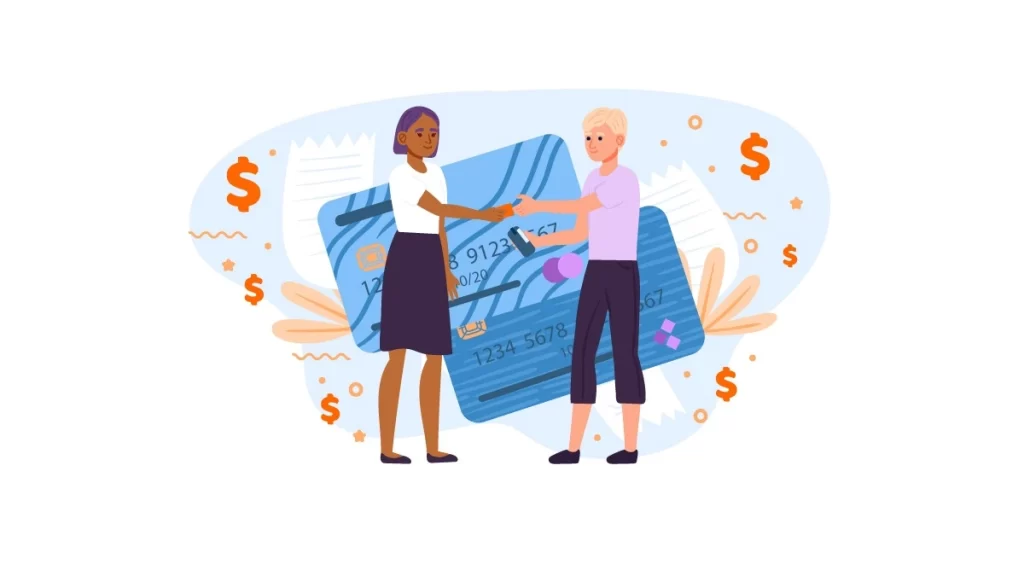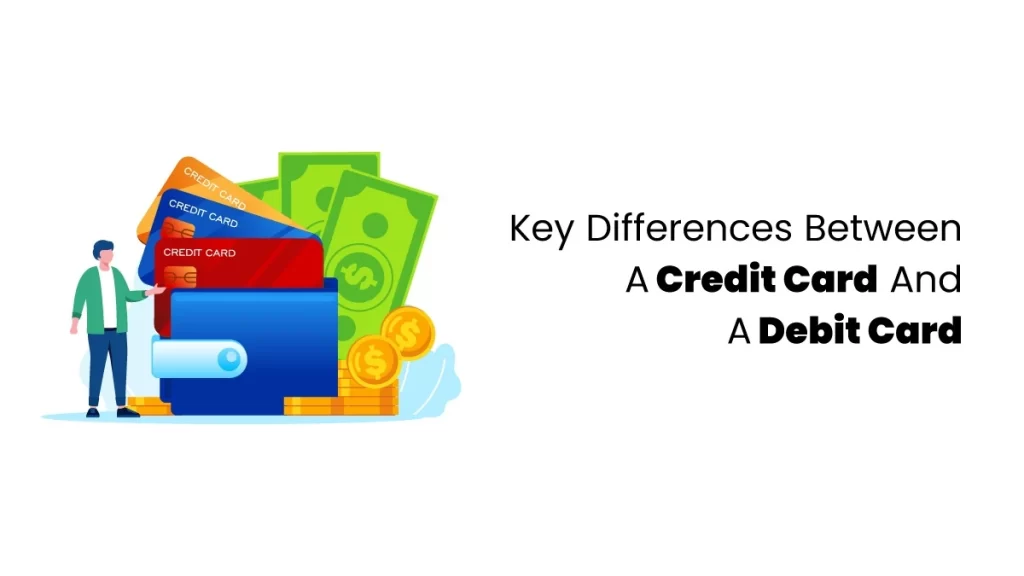Credit card and Debit Card are the two important payment instruments in India. Both of them look alike. But they are entirely different in functionality. Both have their own features and benefits. Practical knowledge of using both cards is essential for managing your finances effectively. This blog provides a clear overview of all information related to both cards.
Understanding Credit Card
A credit card is a payment instrument that allows you to borrow money to buy products and services. You have to repay the borrowed amount to the issuer at the end of your billing period. If you are not able to repay the balance by the expected due date, you will surely have to pay interest charges as well.
Features Of Credit Cards
There are several features for credit cards. They are as shown below:
- Credit Limit: The card issuer sets a maximum credit limit based on your creditworthiness.
- Credit Score Impact: A credit score will be issued based on responsible usage of the credit card
- Interest Charges: The bank will issue interest charges if you are not able to repay the balance by the due date
- Rewards: Credit cards offer rewards like cashback offers, travel points, etc.
How Credit Card Transaction works
Whenever you perform online transactions, websites generally ask for details such as your name on the card, credit card number, CVV2/CVC2 code, and expiry date. Let’s go through each step while the transaction is initiated.
- Once you swipe your credit card or enter your details online, the information is sent to the bank for authorization.
- The bank will check the card details to determine whether they are correct.
- Once the details are verified, an authorization request is sent to the network associated with your credit card (VISA/MasterCard/AMEX).
- Based on the network response, the transaction will be accepted or denied.
- If this transaction is successful, the bank will send funds to the merchant’s account, and a credit card bill will be generated.
- You have to remit this payment on the due date to avoid any unwanted interest rates.
Understanding Debit Card
A debit card will be directly linked to your bank account. When you make a purchase, the amount is deducted from your bank account. Debit Cards are issued by the bank when a current or savings account is opened.
Features Of a Debit Card
There are several features for the Debit Card. They are listed below:
- No Spending Limit: You can spend as much as you wish if there is a balance in your account.
- Instant Deduction: When payment is processed, the money will be instantly reduced from your account balance
- ATM usage: You can withdraw money from an ATM with this debit card
- No Interest Claimed: No interest will be charged on your transactions with a debit card.
How does a Debit Card Transaction Work?
There are specific steps to do a transaction using a debit card. They are
- The first step is verifying whether your bank account has sufficient funds for the merchant.
- If there are sufficient funds in your account, the required funds will be deducted.
- If there is no fund, no transaction will occur.
- If the transaction occurred, the merchant’s account will be instantly credited with the required funds.
- Here, there is no borrowed amount, so no repayment is required and no interest is charged.

Difference Between Credit Card and Debit Card
A credit or debit card will help make transactions. But the process of doing a transaction is entirely different.
When we swipe a debit card, the amount is deducted from our bank account. If your bank has a sufficient balance, the transaction will proceed; otherwise, it will not occur.
But it is not the case with a credit card. Here is the policy of buy now, pay later. The bank will give you credit for completing a transaction, on the condition that you repay it on the due date. If you miss a repayment, the bank will charge you interest.
The difference between credit card and debit card is listed below.
| Debit card | Credit card |
| Spends money that you already have in your bank account | Let’s you use borrowed money that you’ll repay later |
| You can spend only what is available in your account | You can indeed spend up to the credit limit approved by the bank |
| No interest unless you use an overdraft facility | Interest is added if you don’t pay the whole bill on time |
| Has no role in building your credit record | Builds or harms your credit score depending on timely payments |
| Fewer offers, mainly for specific stores or payments | More rewards like cashback, discounts, and travel privileges |
| Fraud cases may take longer to resolve | Stronger buyer protection and faster issue resolution |
Pros And Cons Of Debit Card
The pros of a Debit card are as shown below:
- Budget Friendly in Nature
- ATM Withdrawal Possible
- Convenient for everyday transactions
- Never run into debt
- Go cashless and purchase goods and services
The Cons of a debit card:
- Less protection from fraud
- If you spend more than your account balance, you might incur overdraft fees.
- Will not affect credit score
- Have to remit fees when withdrawing from other ATM
- Limited Rewards Program
- Annual Fees may be applicable
Pros and Cons of Credit Cards
The pros of a credit card are shown below:
- Buy Now, Pay Later policy
- More Protection from Fraud
- Build both a credit history and a credit score
- It will be helpful in an emergency
- Earn Rewards points, travel points, etc.
The cons of a credit card are shown below:
- Late Payment and high unpaid balance can affect a credit score
- Overspending Risk of money
- High interest rates can be a burden if the amount is not repaid on the due date.
Credit Card and Debit Card: Which one is better?
On understanding the changes between debit cards and credit cards, we have an idea about the functioning of these two cards. Let’s check facts to see which one is best.
- If you want flexible fund withdrawal, choose a debit card.
- If you don’t want to fall into debt, choose a debit card
- If you are good at paying bills on time, then choose a credit card
- If you want to pay a large sum in installments by EMI Option, then it’s better to choose a credit card.
Conclusion
We have understood that both debit cards and credit cards have their pros and cons. It is your choice to depend on which card. Credit cards will help you when you have a financial emergency, but debit cards will help you not to fall into debt traps and stay within your budget.
Understanding the difference between debit card and credit card will help you make good financial decisions. By understanding the benefits of both cards, we can avoid misuse of each card by fully enjoying all the financial services it provides.
FAQs
1. Can I overspend using my debit card?
No, you can only spend what is in your account. You cannot overspend more than that.
2. Do I get more protection on my credit card than my debit card?
Yes, Credit cards indeed offer more protection than debit cards.
3. Which is better for online shopping: Credit card or Debit Card?
It is better to use a credit card because you will receive rewards and EMI options while online shopping.
4. List one feature of a debit card and a credit card
No interest will be charged on your transactions with a debit card. But in the case of credit cards, interest will be charged if you don’t repay the money you borrowed on the correct due date.
5. How do Credit Card and Debit Card differ in terms of payment?
A credit card allows payment from the credit limit, while a debit card allows payment from your account balance.










